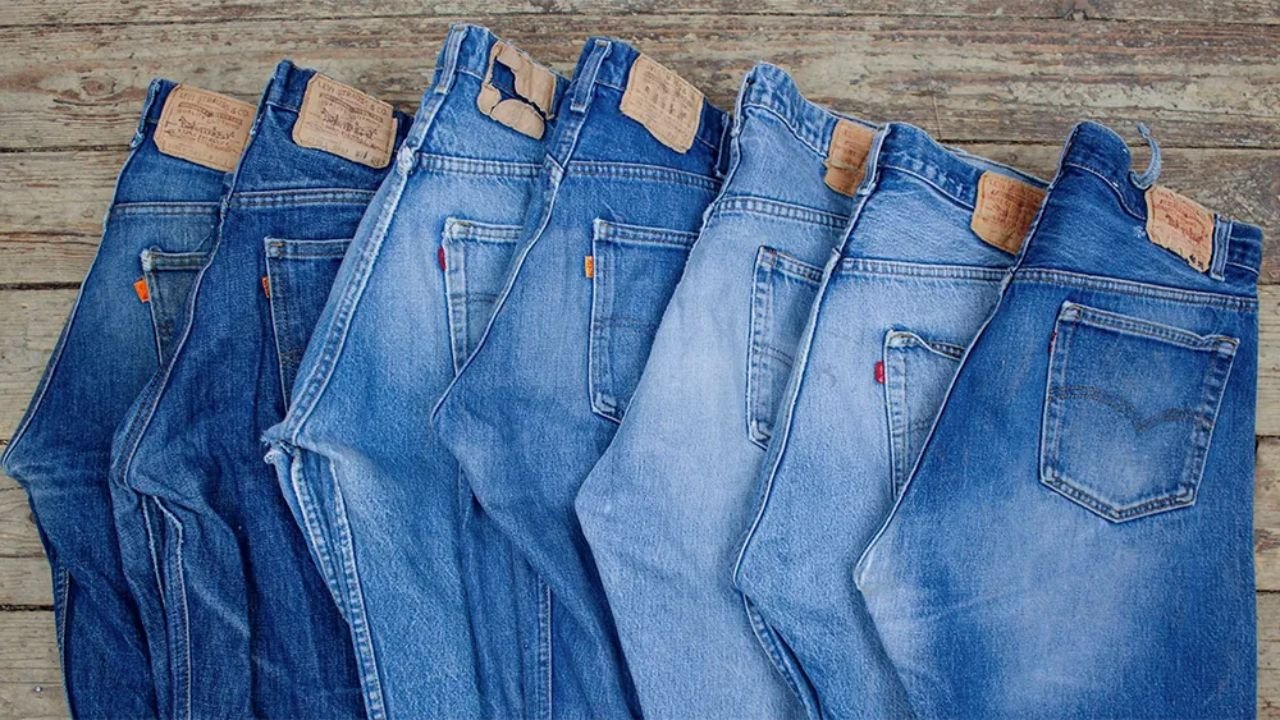In the realm of fashion, few names resonate as profoundly as Levi’s. Known globally for its enduring appeal, Levi’s denim, or “λιβαισ” as it’s referred to in some parts of the world, has become a symbol of style, comfort, and durability. This blog post will explore the captivating story of Levi’s denim, tracing its origins, cultural impact, and evolution. We’ll also examine Levi’s commitment to sustainability and its influence on global fashion trends. Whether you’re a fashion enthusiast, a sustainable shopper, or a history buff, this deep dive into Levi’s promises to enlighten and inspire.
Introduction to Levi’s Denim and the Origin of λιβαισ
The Historical Significance of Levi’s and Its Cultural Impact
Levi’s denim has a rich history that dates back to the 19th century. Founded by Levi Strauss in 1853, the brand started its journey during the California Gold Rush. Levi Strauss, a Bavarian immigrant, saw an opportunity to provide durable workwear to miners who required tough clothing capable of withstanding harsh conditions. Thus, the first pair of Levi’s jeans was born, made from sturdy denim and reinforced with rivets for added strength.
The cultural impact of Levi’s extends beyond its practical roots. In the mid-20th century, Levi’s jeans transitioned from workwear to a fashion statement, embraced by rebels and icons alike. From Marlon Brando to Marilyn Monroe, Levi’s became synonymous with youthful rebellion and coolness. The brand’s ability to adapt to changing cultural landscapes has cemented its place as a timeless fashion staple.
Levi’s jeans have also played significant roles in social movements. During the 1960s, they were worn by civil rights activists, becoming a symbol of equality and freedom. In the decades that followed, Levi’s continued to represent individuality and self-expression, making them a favorite among artists, musicians, and free spirits worldwide.
Evolution of Levi’s Denim From Workwear to Fashion Staple
Levi’s denim has undergone a remarkable transformation over the years. While it began as utilitarian workwear, it quickly captured the imagination of fashion enthusiasts. The introduction of the iconic 501 jeans marked a turning point, offering a fit and style that appealed to a broader audience. The 501s became a canvas for self-expression, with wearers customizing their jeans through distressing, patches, and embroidery.
In the 1980s and 1990s, Levi’s experimented with new cuts and styles, responding to the changing fashion landscape. The brand introduced slimmer silhouettes, baggy fits, and even collaborated with famous designers to create limited-edition collections. This willingness to innovate while staying true to its roots has ensured Levi’s remains relevant in the fashion world.
Today, Levi’s denim is celebrated for its versatility. From classic straight-leg jeans to trendy skinny fits, Levi’s offers a wide range of options to suit diverse tastes and body types. This adaptability has made it a go-to choice for individuals seeking both comfort and style.
Sustainability in Levi’s Eco-friendly Practices and Initiatives
Levi’s commitment to sustainability is a testament to its forward-thinking approach. Recognizing the environmental impact of the fashion industry, Levi’s has implemented various eco-friendly practices to minimize its footprint. One such initiative is the Water<Less™ technique, which reduces water usage during the manufacturing process.
The brand also sources sustainable materials, such as organic cotton and recycled fibers, to create its products. By prioritizing responsible sourcing, Levi’s aims to promote a more sustainable supply chain. Additionally, Levi’s has launched the Wellthread™ collection, featuring garments designed with circularity in mind. These pieces are made to be easily disassembled and recycled at the end of their lifecycle.
Levi’s commitment to sustainability extends beyond its products. The company actively supports initiatives that promote environmental conservation and social responsibility. Through partnerships with organizations like the Better Cotton Initiative and the Ellen MacArthur Foundation, Levi’s is working towards a more sustainable future for the fashion industry.
The Global Appeal of Levi’s and its Role in Fashion Trends
Levi’s denim has a universal appeal that transcends borders and cultures. From the streets of New York to the markets of Tokyo, Levi’s jeans are a common thread that connects fashion enthusiasts worldwide. This global popularity can be attributed to the brand’s ability to adapt to local trends while maintaining its core identity.
Levi’s influence on fashion trends is undeniable. The brand has been at the forefront of denim innovation, introducing new cuts, washes, and finishes that set the standard for the industry. From distressed jeans with a vintage vibe to sleek black skinnies, Levi’s consistently delivers styles that capture the zeitgeist.
In addition to setting trends, Levi’s has collaborated with fashion icons and influencers to create buzzworthy collections. These collaborations, such as those with designers like Virgil Abloh and brands like Supreme, have further solidified Levi’s position as a trendsetter in the fashion world.
The Future of Levi’s and Innovations in Denim Technology
Looking ahead, the future of Levi’s is bright with possibilities. The brand continues to invest in research and development to push the boundaries of denim technology. Innovations such as stretch denim, which offers enhanced comfort and flexibility, have already revolutionized the way we experience jeans.
Levi’s is also exploring the potential of smart textiles and wearable technology. Integrating sensors and connectivity into denim could lead to garments that monitor health metrics, track activity, and provide personalized experiences. This fusion of fashion and technology opens up exciting avenues for Levi’s to stay at the forefront of innovation.
Furthermore, Levi’s commitment to sustainability remains unwavering. The brand is dedicated to reducing its carbon footprint, eliminating harmful chemicals, and promoting circular fashion. By prioritizing environmental consciousness, Levi’s aims to inspire positive change within the industry and empower consumers to make more sustainable choices.
You May Also Like: Explore the Fascinating World of the Amaziğ Culture
Conclusion
In conclusion, the story of Levi’s denim is one of resilience, innovation, and cultural significance. From its humble beginnings as durable workwear to its status as a global fashion icon, Levi’s has left an indelible mark on the fashion landscape. Its commitment to sustainability and technological advancements ensure that it will continue to shape the future of denim.
For fashion enthusiasts, sustainable shoppers, and history buffs alike, Levi’s offers a captivating blend of heritage and modernity. By wearing Levi’s, you become part of a legacy that celebrates individuality, self-expression, and the power of fashion to transcend boundaries.
FAQs
What makes Levi’s denim unique compared to other brands?
Levi’s denim stands out for its rich heritage, iconic designs, and commitment to quality. The brand’s attention to detail, innovative techniques, and focus on sustainability set it apart in the fashion industry.
How does Levi’s contribute to sustainability in the fashion industry?
Levi’s implements eco-friendly practices, such as Water<Less™ techniques and responsible sourcing of materials. The brand also supports initiatives promoting environmental conservation and social responsibility.
Are Levi’s jeans available in different fits and styles?
Yes, Levi’s offers a wide range of fits and styles to cater to diverse preferences. From classic straight-leg jeans to trendy skinny fits, there is a Levi’s style for everyone.
Does Levi’s collaborate with other designers or brands?
Yes, Levi’s frequently collaborates with fashion icons, influencers, and brands to create limited-edition collections. These collaborations infuse fresh perspectives into the brand while maintaining its core identity.
How does Levi’s leverage technology in its denim products?
Levi’s embraces denim technology by incorporating innovations like stretch denim for enhanced comfort. The brand is also exploring smart textiles and wearable technology to offer personalized experiences.








